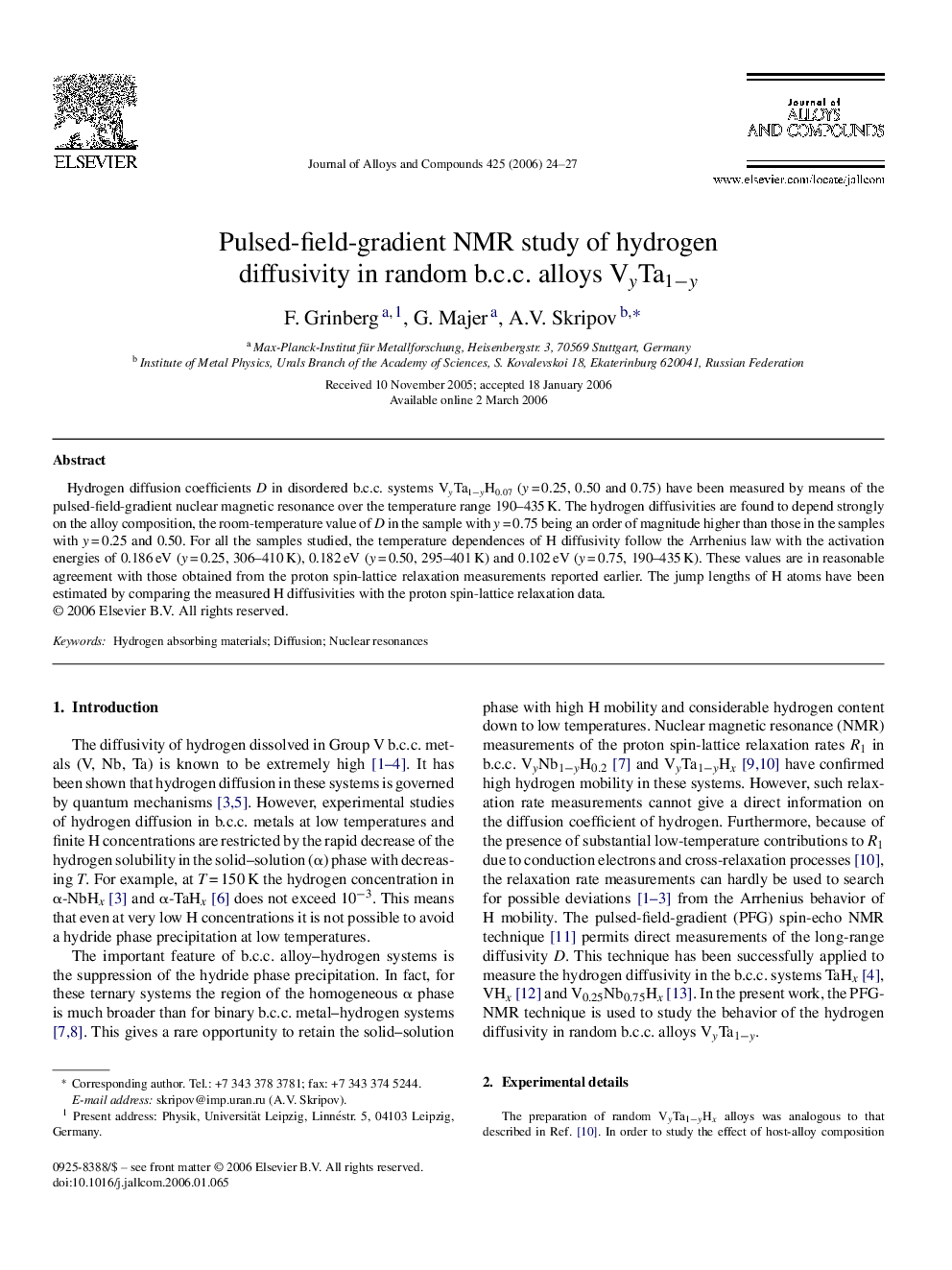| Article ID | Journal | Published Year | Pages | File Type |
|---|---|---|---|---|
| 1627129 | Journal of Alloys and Compounds | 2006 | 4 Pages |
Abstract
Hydrogen diffusion coefficients D in disordered b.c.c. systems VyTa1âyH0.07 (y = 0.25, 0.50 and 0.75) have been measured by means of the pulsed-field-gradient nuclear magnetic resonance over the temperature range 190-435 K. The hydrogen diffusivities are found to depend strongly on the alloy composition, the room-temperature value of D in the sample with y = 0.75 being an order of magnitude higher than those in the samples with y = 0.25 and 0.50. For all the samples studied, the temperature dependences of H diffusivity follow the Arrhenius law with the activation energies of 0.186 eV (y = 0.25, 306-410 K), 0.182 eV (y = 0.50, 295-401 K) and 0.102 eV (y = 0.75, 190-435 K). These values are in reasonable agreement with those obtained from the proton spin-lattice relaxation measurements reported earlier. The jump lengths of H atoms have been estimated by comparing the measured H diffusivities with the proton spin-lattice relaxation data.
Related Topics
Physical Sciences and Engineering
Materials Science
Metals and Alloys
Authors
F. Grinberg, G. Majer, A.V. Skripov,
